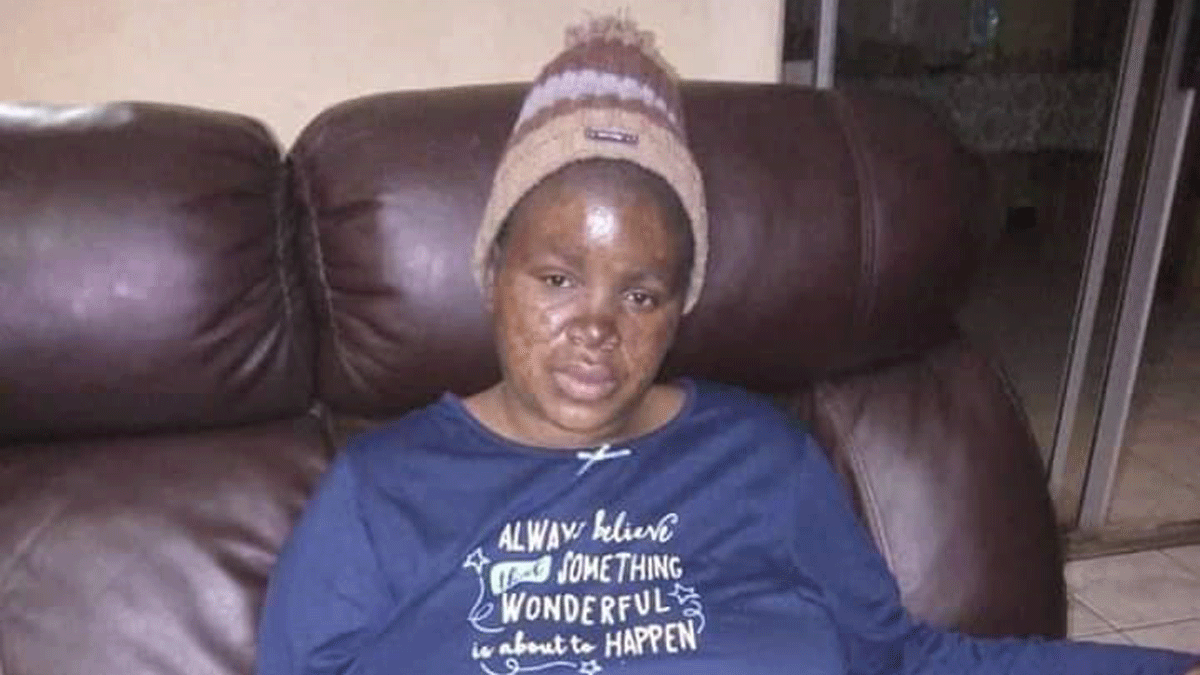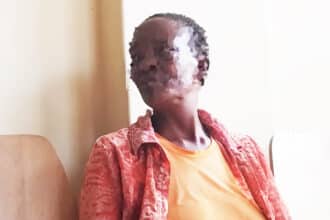-
A survivor’s story
Globally, the month of May is dedicated to raising awareness about Lupus, an inflammatory disease that is said to be difficult to diagnose because of its broad spectrum of symptoms that vary from patient to patient; hence it is known as ‘the disease with a thousand faces’.
Who better to spearhead the awareness campaign locally than a survivor of Lupus, Afro Jazz musician, Gaone Gee Ditirafalo. The Molepolole native hosted the second installment of the Annual Lupus Awareness Concert this past Saturday, performing alongside Murubele Traditional Group, Naomi Tes, MC Theo, Kitso Selato and House of the Uncommon.

A recipient of the Mulher Forte African Literature award 2021 and 2013 My Star second runner-up, the passionate performer says she was diagnosed with the brutal condition in 2018, two months after returning home from Cape Town where she had just graduated from AFDA with a Bachelor’s Degree in Live Performance.
She chats with Voice Woman about her harrowing ordeal battling the psychologically and physically draining condition, making her an invalid the first 6 months.
Please share your journey right from the moment you were diagnosed with Lupus; when and how did you find out?
I survived a rare chronic condition, which affects every part of the body: brain, joints, kidneys and even the skin.
In 2018, two months after returning home from varsity, I fell sick.
I was later diagnosed and in my case, my joints were affected.
I was confined to a wheel chair for six months, and had to learn to live as an infirm but later used a walking frame, then crutches.
Let’s talk about the psychological effects of the condition.
My journey with Lupus was not an easy one because I did not know how to handle it.
For a while I found it so hard to accept my new reality.
I wasn’t only affected physically, but emotionally, too; I became depressed but, thankfully, with the great support of my family, I went for counselling, which helped me accept the situation and managed to live through it.
I then started believing in myself again, hence the decision to raise awareness on lupus since a lot of people do not know about it.
What were the early signs in your case?
I started feeling unusually tired, constantly; no amount of rest would suffice.
It’s referred to as chronic fatigue. I also had severe headaches such that I would from time to time experience seizures, mostly in the evenings.
I had one episode where I collapsed and was unconscious for 9 days; I couldn’t eat or do anything.
These are just some of the signs and symptoms that one may have lupus and must seek medical assistance.
How is the disease treated? And how soon did you begin treatment?
Lupus is incurable.
With this condition, basically your white blood cells become overactive, attacking other parts of your system.
The disease is treated with immunosuppressants; steroids that reduce inflammation.

What side effects does treatment have on your overall health?
Steroids have unpleasant side effects like excessive weight gain, palpitations etc. I had to learn to manage the weight gain with diet and exercise
What profound lessons have you drawn from this life-changing experience?
I’ve learnt that I can be and do whatever I want despite the challenges that I face.
Challenges should never derail you from accomplishing your goals.
As I’ve mentioned, I’m an artist, and although lupus rendered me disabled at one point, I did not stop doing what I love most – making music and performing – or pursuing my dreams.
What advice would you share with someone recently diagnosed?
If you were recently diagnosed, don’t despair, be hopeful since your situation will change and you’ll overcome… as long as you follow the instructions of your physicians, and also go for therapy.
You refer to yourself as a survivor yet Lupus has no cure; what exactly do you mean? Have you been cleared?
That simply means I am on clinical remission, meaning the lupus is not active anymore.
And, lastly, any future plans to take your awareness concert to other parts of the country?
I want to raise awareness across Botswana; go from city to city and all villages.
Let’s talk about your new single…
My latest single is titled ‘Nnaya’.
It was inspired by my own experience with the overwhelmingly depressing Lupus.
It is about a lady who fell into a depression due to a sickness but later regains her strength and is once again positive and hopeful.
It is available on all digital platforms: Amazon, iTunes and others.
TREATMENT
• All patients with lupus should receive education, counselling and support.
• Traditionally, the diagnosis and management of Lupus is provided at secondary and tertiary centers to ensure prompt initiation of treatment, adequate control of flares and prevention of irreversible organ damage.
• The condition will vary in activity over time, with a tendency for flaring of disease where people may develop increase in rashes, oral ulcers, internal organ involvement.
• A number of different medications are used in the treatment of lupus, including nonsteroidal anti-inflammatory drugs (NSAIDs), hydroxychloroquine or chloroquine, glucocorticoids (also called steroids), and immunosuppressive agents.
• The choice of medications for lupus is highly individualized and guided by which organs are affected as well as how severe symptoms are.
• The benefit of these medications is weighed against the risks because these treatments have potentially serious side effects.
• Avoiding direct sun exposure when possible and using sunscreen for sun protection reduces skin involvement.
• Vaccines to prevent pneumonia and the flu are recommended for people with lupus.
• Family planning is an important consideration in women with lupus, since many women with lupus are of reproductive age. Also, there are some medications used to treat lupus that are not safe to take during pregnancy. Thus someone affected by lupus should always consult a medical professional when planning pregnancy.
[Source: #LupusAwareness BWGovernment]
Lupus facts and statistics
How common is lupus and who does it affect?
• 5 million people worldwide have a form of lupus.
• Lupus strikes mostly women of childbearing age. However, men, children, and teenagers develop lupus, too.
• 90% of people living with lupus are women. Most people with lupus develop the disease between the ages of 15 – 44.
• People with lupus can experience significant symptoms, such as pain, extreme fatigue, hair loss, cognitive issues, and physical impairments that affect every facet of their lives. Many suffer from cardiovascular disease, strokes, disfiguring rashes, and painful joints. For others, there may be no visible symptoms.
[Source: Lupus.org]







